The commercial importance of Kumasi encourages both men and women to trade, and many moved here for that purpose. The savannah-based trading networks to the north of Kumasi are dominated by Muslim men. Long before Kumasi was founded, towns like Salaga were important centers in this network, and attracted traders from present-day Burkina Faso, Niger, Nigeria and Mali. After British conquest allowed them access to Kumasi, men from these ethnic groups continued to control wholesale trade in cattle, kola nuts, and other important commodities.
About 80% of the total female population of working age in Kumasi makes a living by trading. Muslim women trade in the Central Market and in smaller neighborhood markets, especially in shea butter and in other foods popular with the Northern ethnic groups. A few women own stores in the commercial areas of town, but it is more often men who have this much capital. Many women also sell from tables on the roadside just outside their houses. Those who wish to stay at home can still trade, and many sell cooked food to regular customers. They can also buy and resell other goods by visiting suppliers and customers at their homes, by receiving visitors in their own homes, and by selling through hawkers who carry their goods from door to door.
Date: October 13, 1946
Format: Text/jpeg
Muslim traders settled freely in Kumasi after British conquest in 1898, but they had to negotiate a place for themselves politically and economically as a minority. Each immigrant ethnic group acknowledged a Kumasi headman, who maintained constructive relations with the Asante chiefly hierarchy and the British colonial authorities to protect their trading activities and legal traditions. Although most of the translations for this case will be from oral interviews, the paramount chief's archives contain valuable English language documents from earlier decades, such as petitions and court cases. The following sample document shows high-ranking palace officials mediating a conflict between male traders from Gao (Mali) and Asante women traders. Their rivalry over access to truckloads of yams arriving in Kumasi Central Market sparked several violent clashes between 1938 and 1952.
Date: 2006
Format: Image-MovingImage/mp4
"My uncle saw that I was not interested in marriage, so one day he just called me and said 'I want you to be married to your brother [cousin],' and it worked."
Date: 2006
Format: Image-MovingImage/mp4
"As I understood the teachings of Islam, I pledged to let my fellow Muslims also know more about Islam and the Koran. That is why I prefer teaching."
Date: 2006
Format: Image-MovingImage/mp4
"It is only me, a woman selling these double axles here. My family are proud of me as a woman selling this, because it is not easy for some women to learn this trade."
Date: August 13, 2009
Format: Image-MovingImage/mp4
"Bicycles have helped me."
Date: August 13, 2009
Format: Image-MovingImage/mp4
"I know what is bad and what is good for me."
Date: August 13, 2009
Format: Image-MovingImage/mp4
"All that we need is unity."
Date: August 13, 2009
Format: Image-MovingImage/mp4
"First, be honest; second, be patient."
Date: August 13, 2009
Format: Image-MovingImage/mp4
"The religion of Islam is totally about peace"
Date: August 15, 2009
Format: Image-MovingImage/mp4
"Islam teaches us to love one another."
Date: August 15, 2009
Format: Image-MovingImage/mp4
"People like coming here."
Date: August 15, 2009
Format: Image-MovingImage/mp4
"We don't advise that."
Date: August 15, 2009
Format: Image-MovingImage/mp4
"I have to respect these people."
Date: August 21, 2009
Format: Image-MovingImage/mp4
"I will drive peacefully; I will come home peacefully."
Date: August 21, 2009
Format: Image-MovingImage/mp4
"I'm a real Zongo man."
Date: August 21, 2009
Format: Image-MovingImage/mp4
"I don't think I can marry again."
Date: August 21, 2009
Format: Image-MovingImage/mp4
Date: 1979
Format: Image-StillImage/jpeg
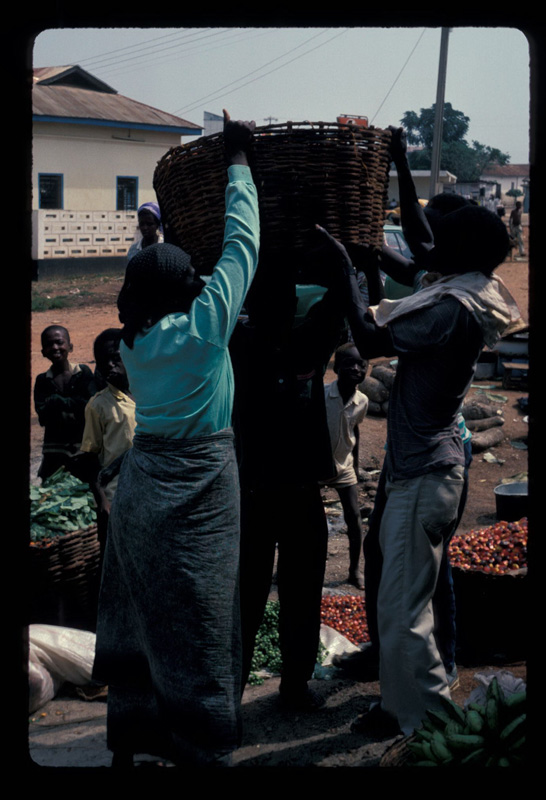
Lifting basket on man's head.
Date: 1979
Format: Image-StillImage/jpeg
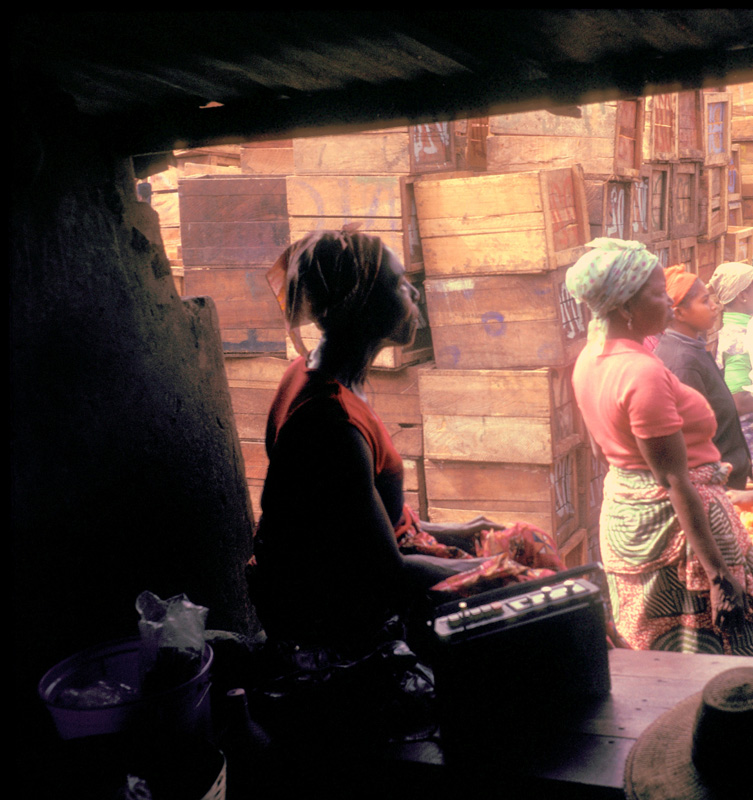
Silhouette of old lady at tomato yard.
Date: 1979
Format: Image-StillImage/jpeg
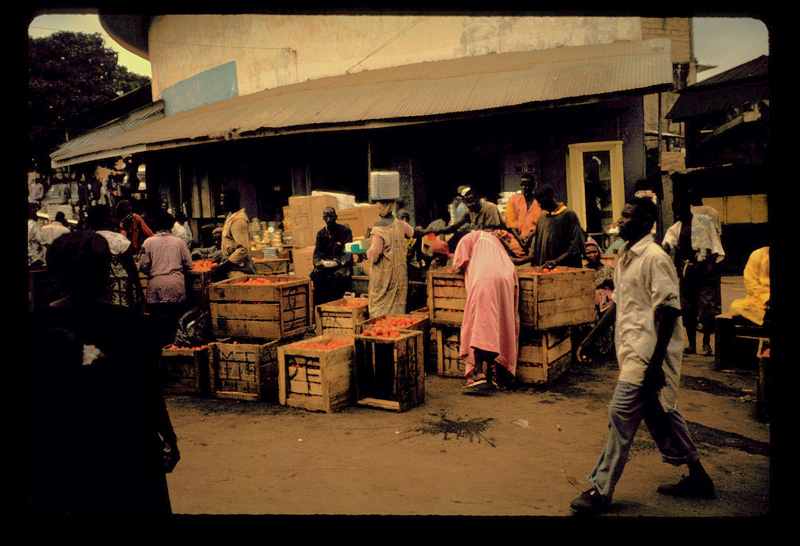
Northern men with tomato boxes selling in Bolgatanga market.
Date: 1979
Format: Image-StillImage/jpeg
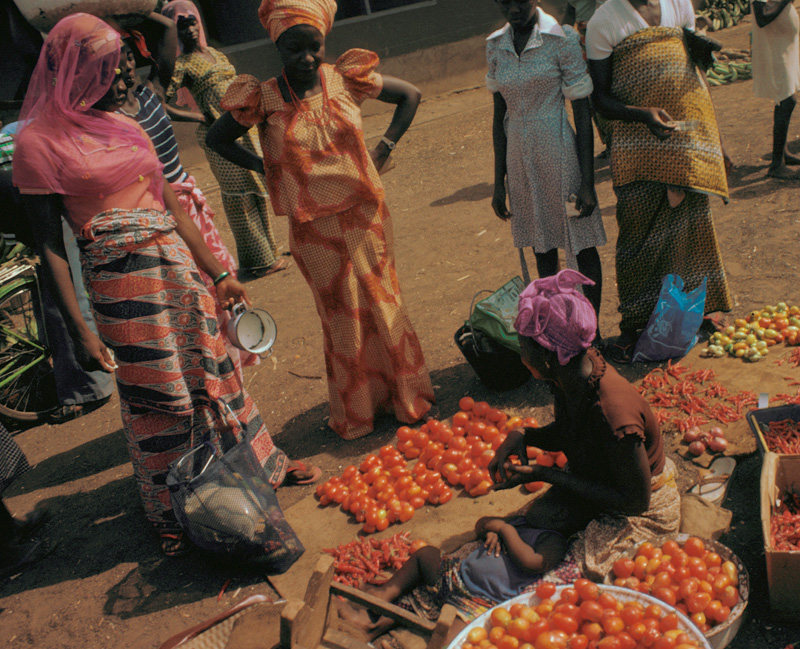
Customers standing, tomatoes on sack.
Date: 2006
Format: Image-StillImage/jpeg
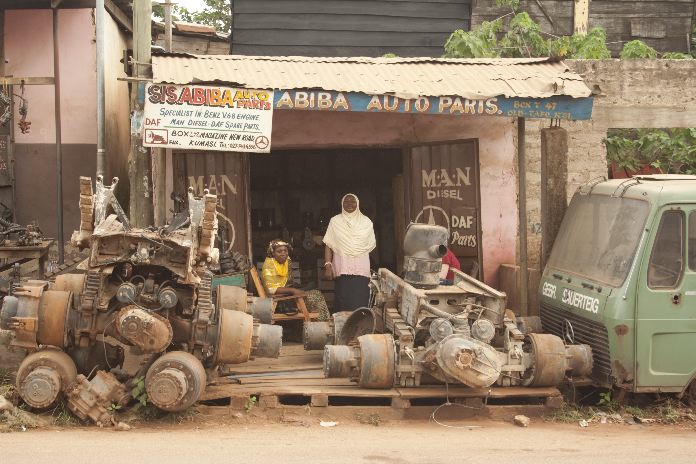
Hajia Habiba in her stall with double axles in Suame Magazine.
Date: 2009
Format: Image-StillImage/jpeg
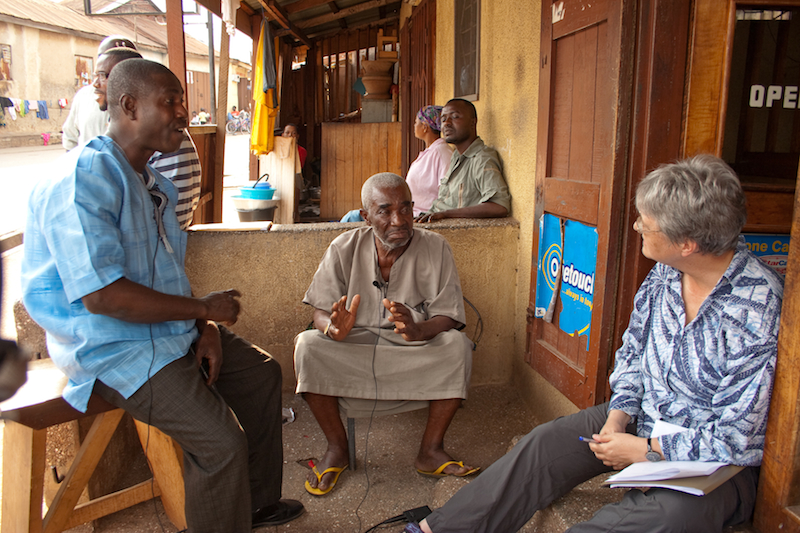
Interviewing on the front porch of a compound house.
Date: 2009
Format: Image-StillImage/jpeg
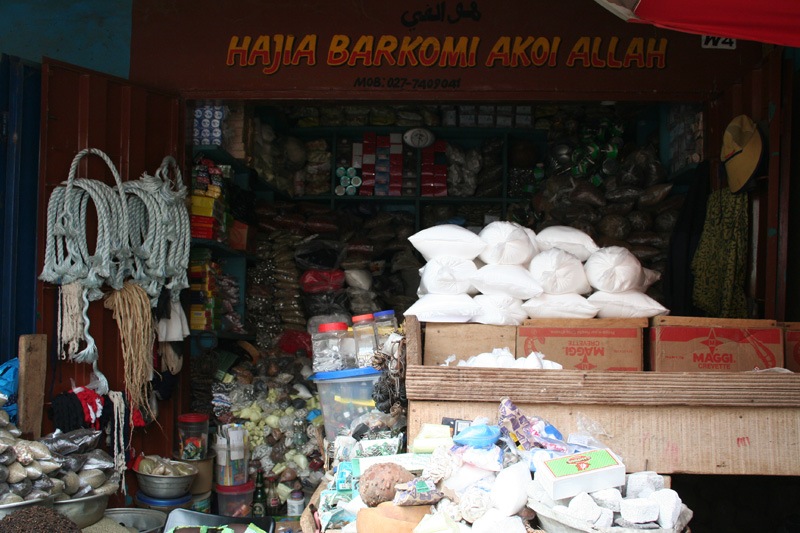
Herbalist stall in Kumasi Central Market.
Date: 2009
Format: Image-StillImage/jpeg
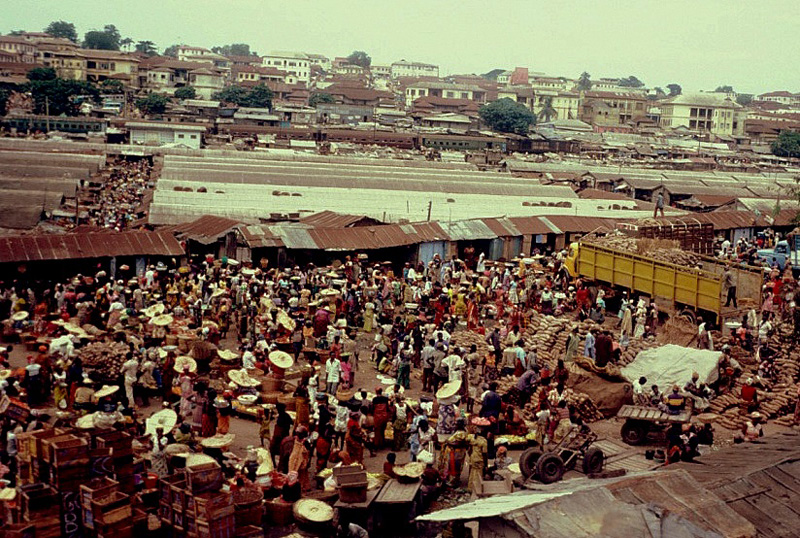
Overview of Kumasi Central Market from above wholesale yards.
Date: 2009
Format: Image-StillImage/jpeg
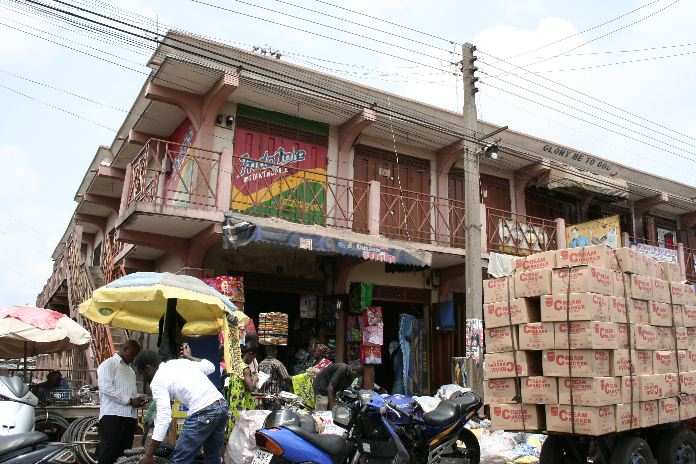
Commercial building in Old Zongo.





